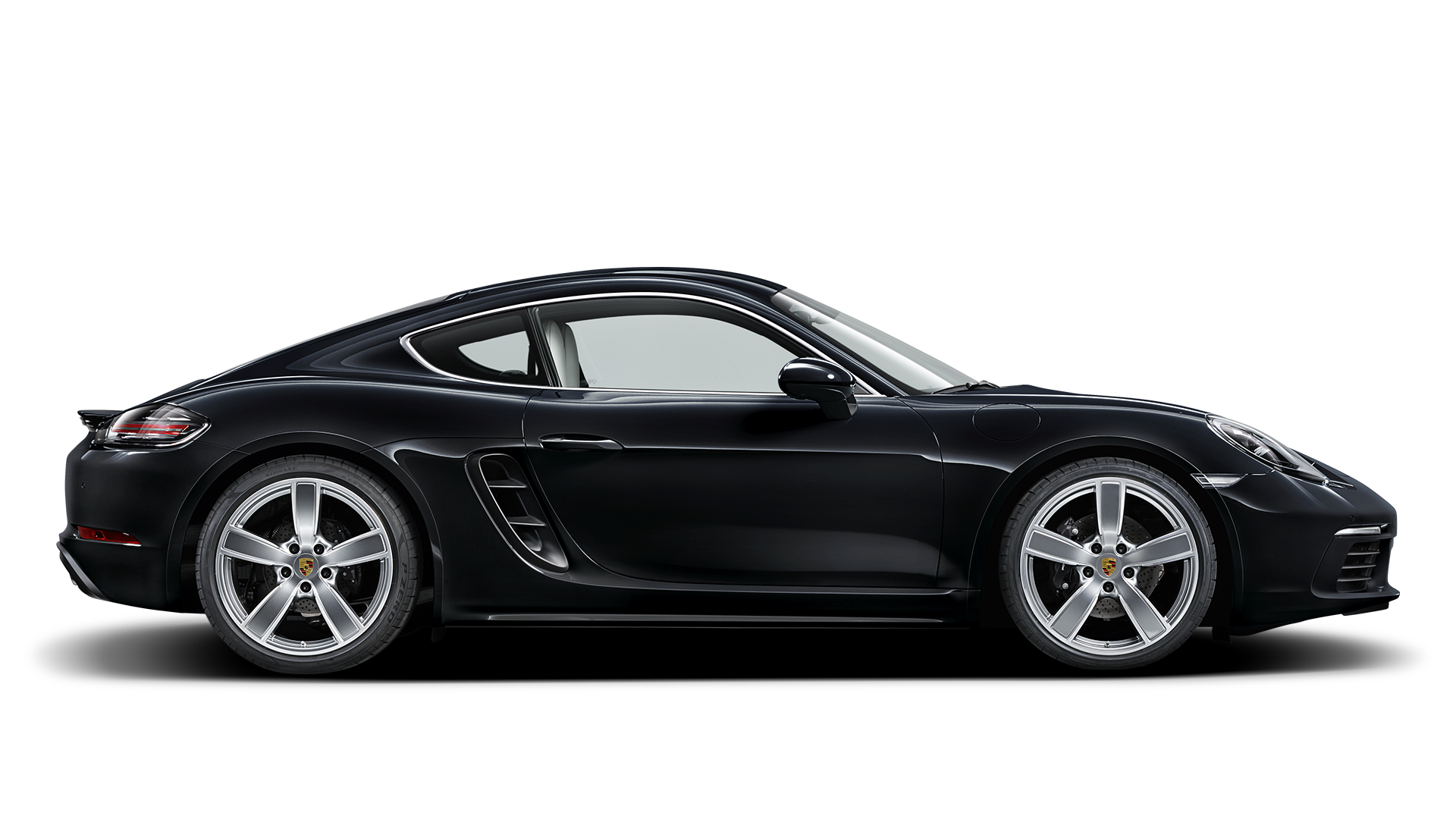
Seleccionar y configurar modelos 718.
| Number of cylinders | 4 |
| Bore | 102,0 mm |
| Stroke | 76,4 mm |
| Displacement | 2.497 cm³ |
| Power (kW) | 257 kW |
| Power (PS) | 350 PS |
| Maximum engine speed | 7.500 1/min |
| Max. torque | 420 Nm |
| Max. output per liter (kW/l) | 102,00 kW/l |
| Max. output per liter (PS/l) | 140,00 PS/l |
| Top speed | 285 km/h |
| Acceleration 0 - 100 km/h (Manual) | 4,6 s |
| Acceleration 0 - 100 km/h (PDK) | 4,4 s |
| Acceleration 0 - 100 km/h with Sport Chrono Package (PDK) | 4,2 s |
| Acceleration 0 - 160 km/h (Manual) | 9,7 s |
| Acceleration 0 - 160 km/h (PDK) | 9,5 s |
| Acceleration 0 - 160 km/h with Sport Chrono Package (PDK) | 9,2 s |
| Acceleration 0 - 200 km/h (Manual) | 15,2 s |
| Acceleration 0 - 200 km/h (PDK) | 15,0 s |
| Acceleration 0 - 200 km/h with Sport Chrono Package (PDK) | 14,7 s |
| Flexibility (80-120 km/h) (50-75 mph) in 5th gear (Manual) | 5,0 s |
| In-gear acceleration (80-120km/h) (50-75 mph) (PDK) | 2,8 s |
| Length | 4.379 mm |
| Width | 1.801 mm |
| Width (with mirrors) | 1.994 mm |
| Height | 1.271 mm |
| Wheelbase | 2.475 mm |
| Unladen weight (DIN) (Manual) | 1.355 kg |
| Unladen weight (DIN) (PDK) | 1.385 kg |
| Unladen weight (EU) (Manual)1) | 1.430 kg |
| Unladen weight (EU) (PDK)1) | 1.460 kg |
| Permissible gross weight (Manual) | 1.665 kg |
| Permissible gross weight (PDK) | 1.695 kg |
| Maximum load | 310 kg |
1) Weight is calculated in accordance with the relevant EC Directives and is valid for vehicles with standard specification only. Optional equipment increases this figure. The figure given includes 75kg for the driver
| Luggage compartment volume, front | 150 l |
| Luggage compartment volume, rear V210-1 | 122 l |
| CO2 emissions combined (Manual) | 218 g/km |
| CO2 emissions combined (PDK) | 200 g/km |
| Sound level of stationary vehicle | 93 dB(A) |
| Sound level of stationary vehicle (rpm) | 3.750 1/min |
| Sound level of passing vehicle | 70 dB(A) |
2) Data determined in accordance with the measurement method required by law. Since 1 September 2017 certain new cars have been type approved in accordance with the Worldwide Harmonised Light Vehicles Test Procedure (WLTP), a more realistic test procedure to measure fuel/electricity consumption and CO₂ emissions. As of 1 September 2018 the WLTP replaced the New European Driving Cycle (NEDC). Due to the more realistic test conditions, the fuel/electricity consumption and CO₂ emission values determined in accordance with the WLTP will, in many cases, be higher than those determined in accordance with the NEDC. This may lead to corresponding changes in vehicle taxation from 1 September 2018. You can find more information on the difference between WLTP and NEDC at ww.porsche.com/wltp Currently, we are still obliged to provide the NEDC values, regardless of the type approval process used. The additional reporting of the WLTP values is voluntary until their obligatory use. As far as new cars (which are type approved in accordance with the WLTP) are concerned, the NEDC values will, therefore, be derived from the WLTP values during the transition period. To the extent that NEDC values are given as ranges, these do not relate to a single, individual car and do not constitute part of the offer. They are intended solely as a means of comparing different types of vehicle. Extra features and accessories attachments, tyre formats, etc.) can change relevant vehicle parameters such as weight, rolling resistance and aerodynamics and, in addition to weather and traffic conditions, as well as individual handling, can affect the fuel/electricity consumption, CO₂ emissions and performance values of a car.
Galería.

Personalización / Exclusive .
En

Contáctenos.
Contacte un Centro





































































































































